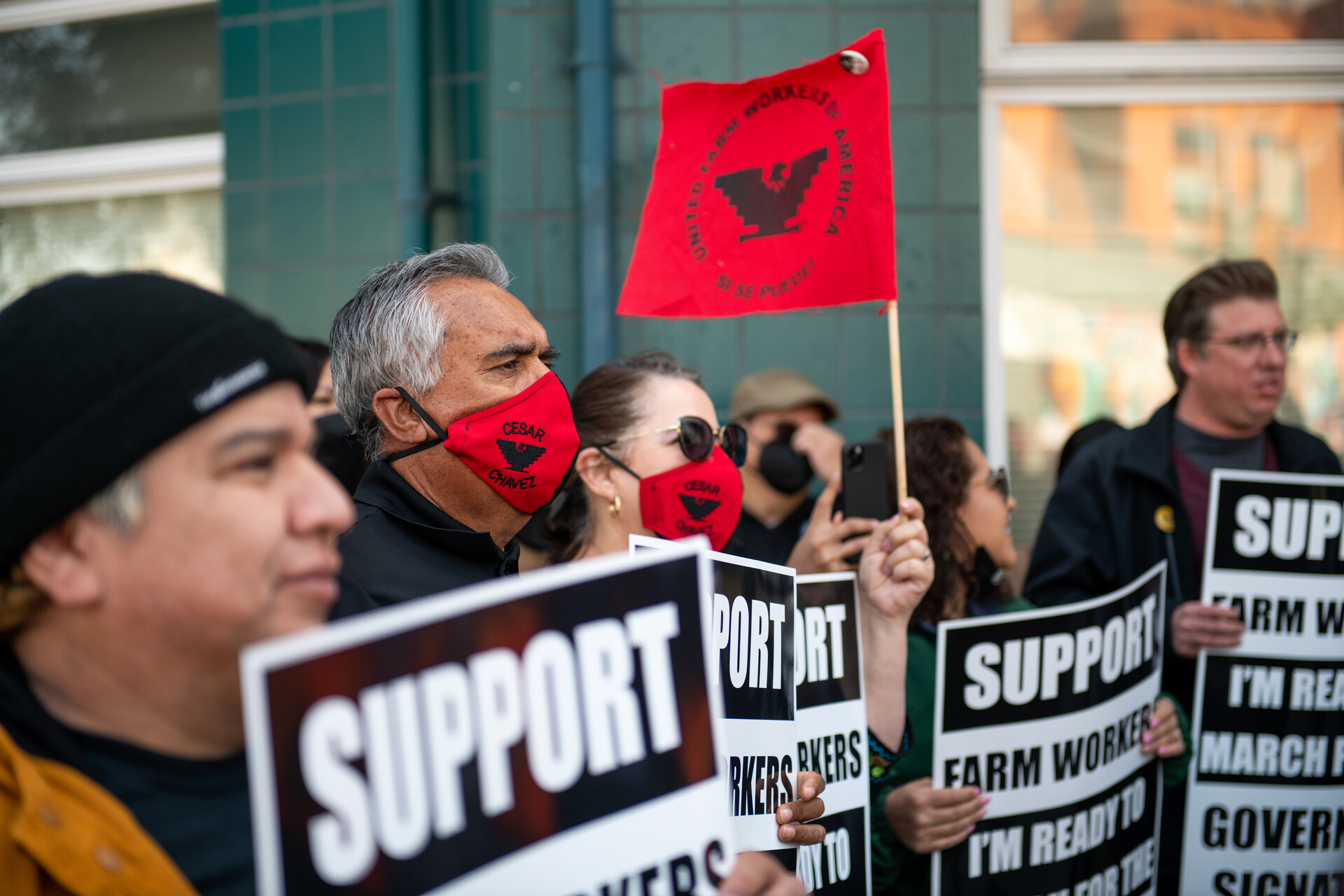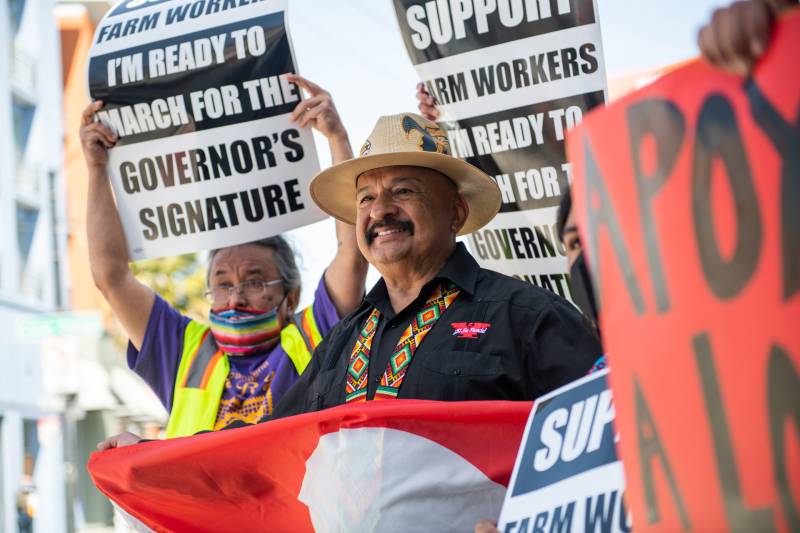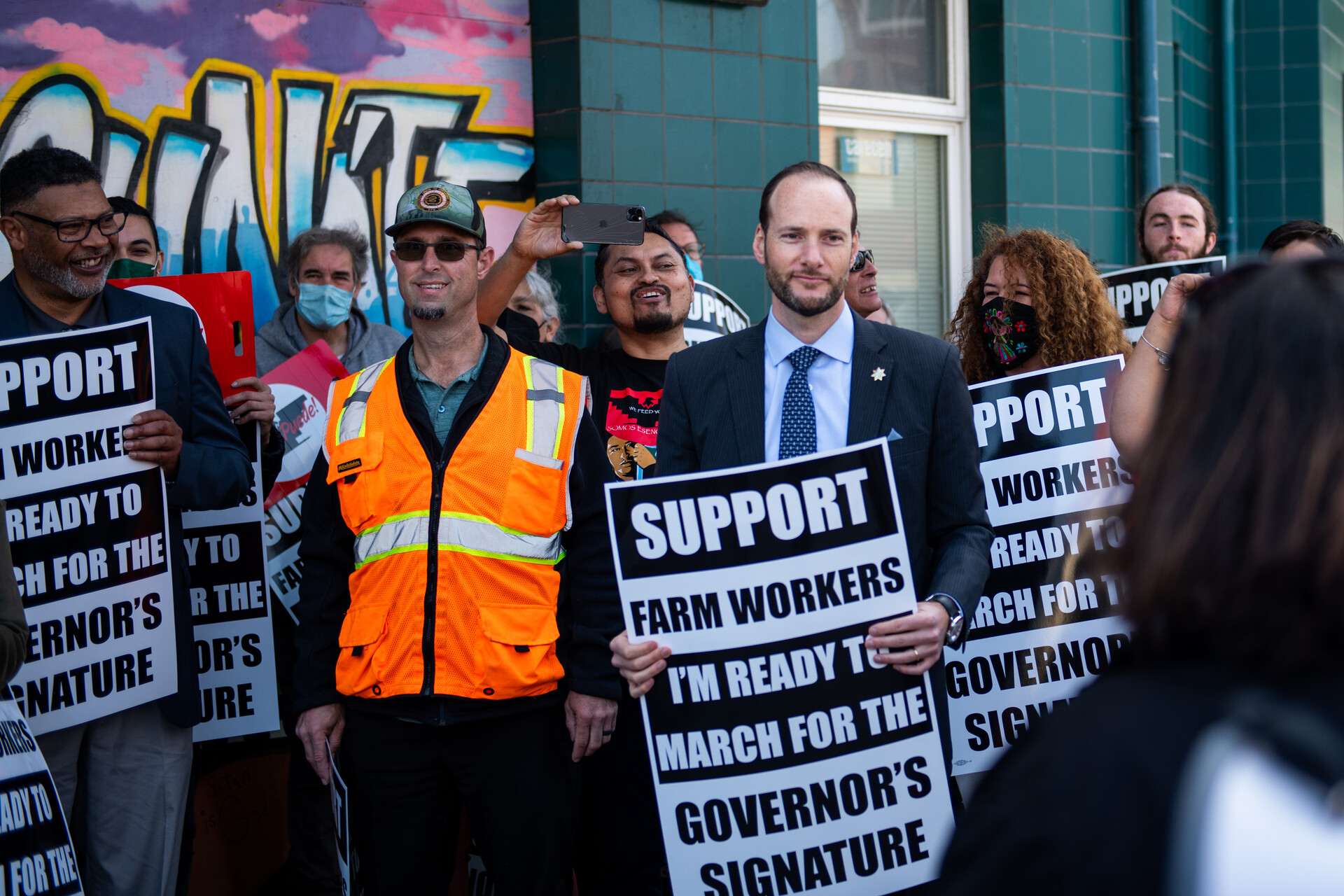On Thursday — César Chávez Day — a group of about 50 farmworkers, advocates and community members gathered in Fresno to march in honor of the late labor leader and to once again ask Gov. Gavin Newsom to sign a bill that would make it easier for farmworkers to vote in union elections.
“Farmworkers are asking what could be more important than meeting with farmworkers on César Chávez Day,” said Elizabeth Strater, director of strategic campaigns for the United Farm Workers, in a recent interview with The Bee. On Wednesday, Newsom’s office confirmed that he and his family were on vacation in Central and South America.
The march was part of a series of events organized by the UFW and its foundation in 13 rural and urban California cities — including San Francisco, San Jose and Berkeley — in which farmworkers gathered to raise awareness about the Agricultural Labor Relations Voting Choice Act, AB 2183, a bill that would give farmworkers the option to vote by mail in union elections.
Among those marching in Fresno on Thursday were San Joaquin Valley elected officials: Santos Garcia, the mayor of Madera; and Jose Sigala, a councilmember from Tulare currently running for state Assembly for the 33rd District.
“I’m here to lend support to this legislation,” said Sigala. “Hopefully, the governor sees not only this action but the action across the state.”

The coordinated marches took place less than a year after the UFW organized a march to the French Laundry — a reference to the pricey meal Newsom had with lobbyists as he asked other Californians to avoid mixed groups and indoor settings during the coronavirus pandemic — after Newsom vetoed an initial version of the bill, AB 616, last September.


